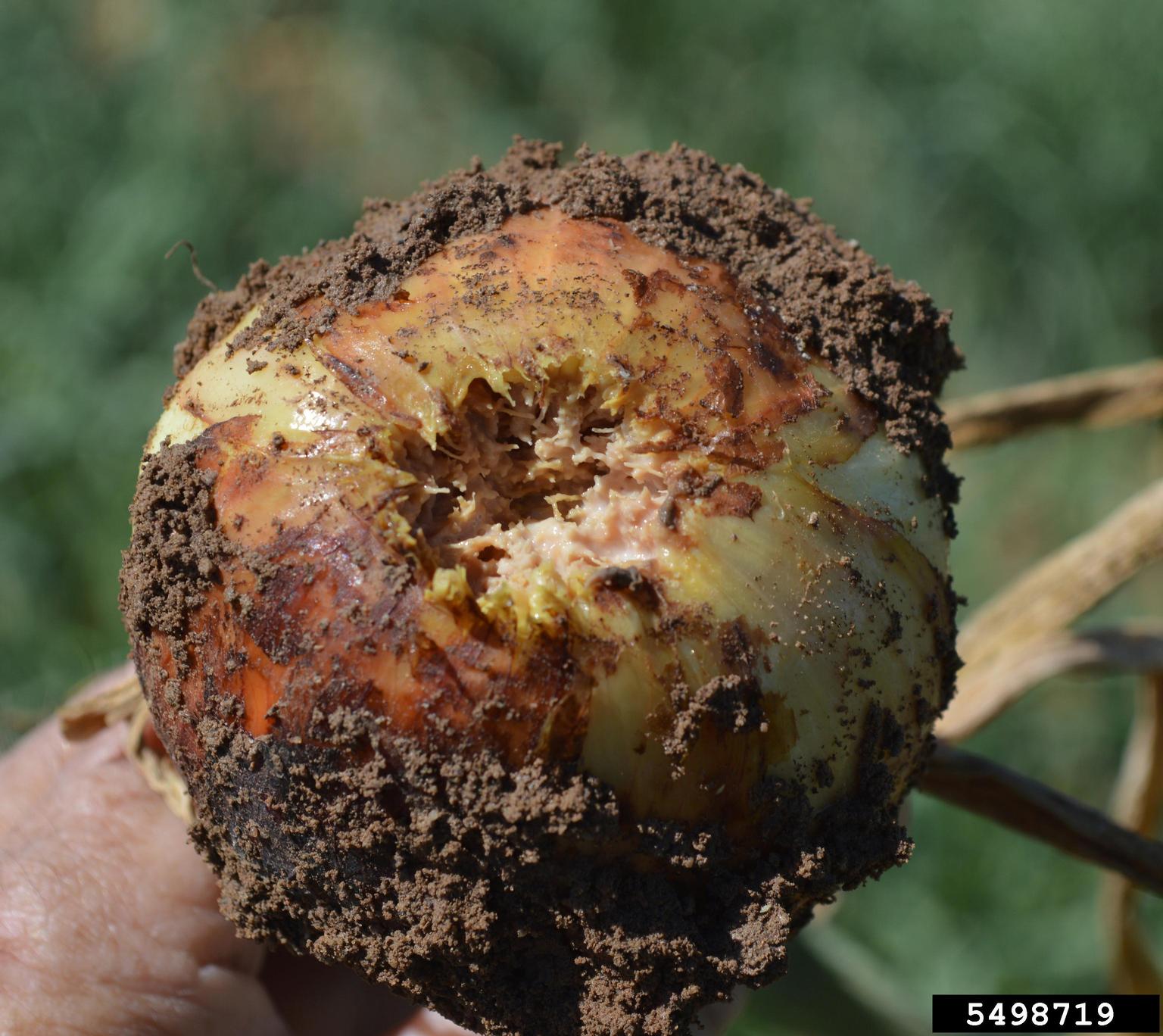What Is Onion Basal Plate Rot: Tips For Treating Onion Fusarium Rot


All kinds of onions, chives, and shallots can be affected by the disease known as onion fusarium basal plate rot. Caused by a fungus that lives in the soil, the disease can be difficult to catch until the bulbs have developed and ruined by rot. The best way to manage fusarium rot is to take steps to prevent it.
What is Onion Basal Plate Rot?
Fusarium basal plate rot in onions is caused by several species of Fusarium fungi. These fungi live in the soil and survive there for a long time. The infection occurs in onions when the fungus is able to get in through wounds, insect damage, or root scars on the bottom of the bulb. Warm soil temperatures favor the infection. Temperatures in the soil between 77 and 90 degrees Fahrenheit (25 to 32 degrees Celsius) are optimal. The symptoms of onion fusarium basal plate rot underground include rotting of the roots, white mold, and soft, watery decay in the bulb that begins in the basal plate and spreads to the top of the bulb. Aboveground, the mature leaves begin to yellow and die back. Because the leaf symptoms only begin at maturity, by the time you notice the infection, the bulbs have already rotted.
Preventing and Managing Onion Fusarium Rot
Treating onion fusarium rot isn’t really possible, but good management practices can help you prevent the disease or minimize its impact on your onion yield. The fungi that cause fusarium of onion basal plates live long in the soil and tend to accumulate, so a rotation of onion crops is important. The soil is also important and should drain well. A sandy soil in a raised bed is good for drainage. You can minimize the chances of having fusarium rot in your onions by choosing certified disease-free transplants and varieties that have some resistance to the fungi, like Cortland, Endurance, Infinity, Frontier, Quantum, and Fusario24, among others. When working in the garden, take care not to wound or damage the bulbs or roots underground, as wounds promote infection. Keep insects under control and provide your plants with adequate nutrients.
Sign up for the Gardening Know How newsletter today and receive a free copy of our e-book "How to Grow Delicious Tomatoes".

Mary Ellen Ellis has been gardening for over 20 years. With degrees in Chemistry and Biology, Mary Ellen's specialties are flowers, native plants, and herbs.